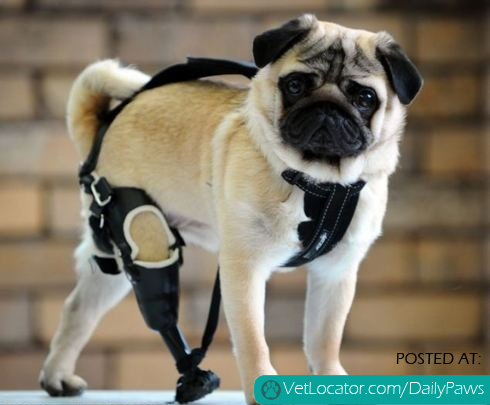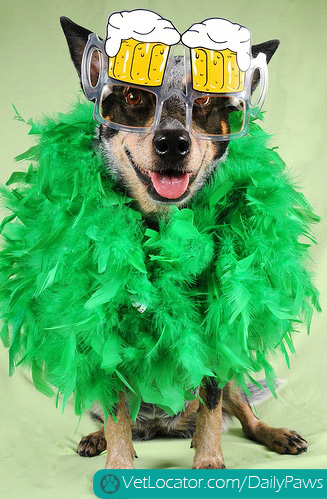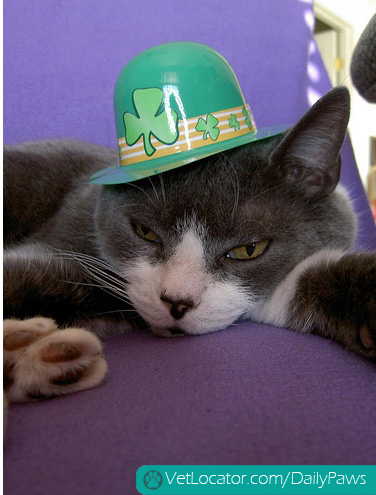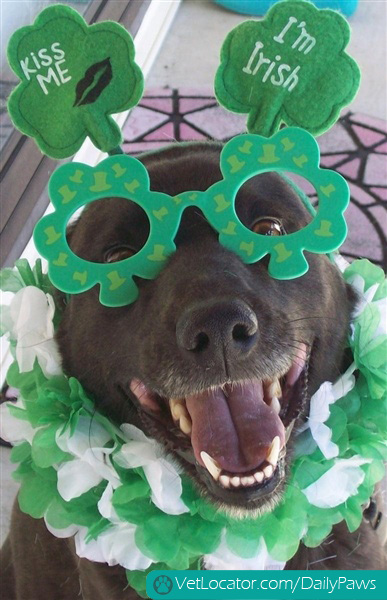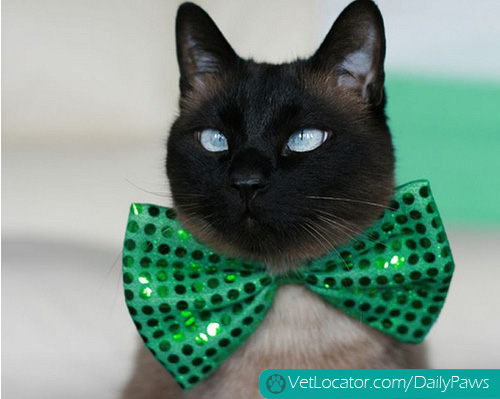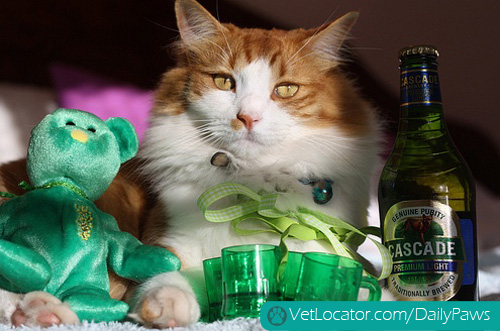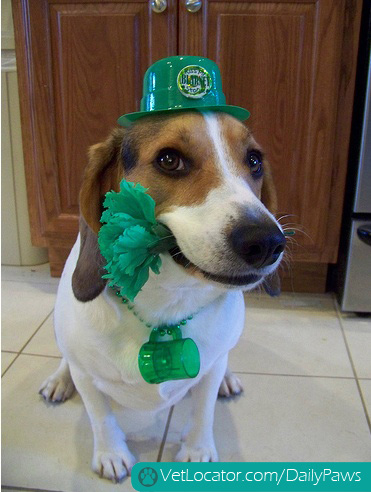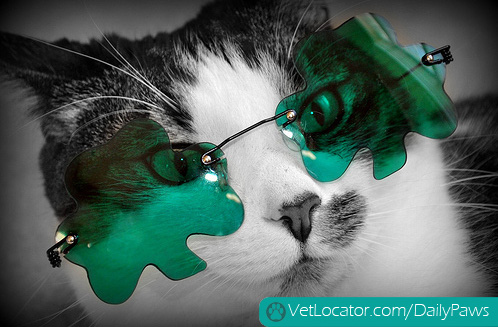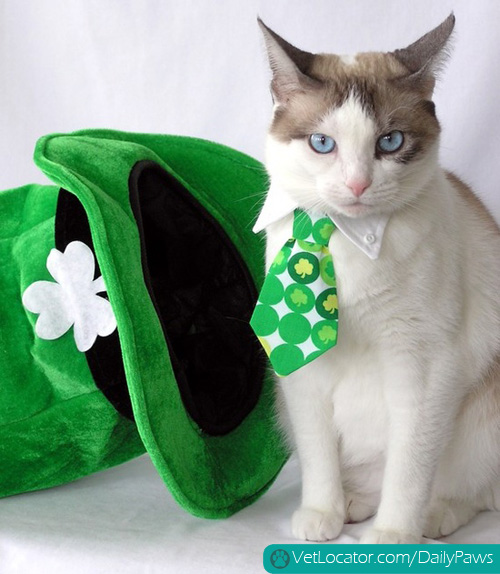Daily Paws Picture of the Day: Koala Hug
March 11th, 2013Aggressive Treatment Needed for Pet’s Orthopedic Pain
March 7th, 2013Here is an excellent article from the University of Illinois College of Veterinary Medicine on what to do about a pets joint pain by Sarah Netherton
“Orthopedic pain is considered a severe type of pain that any mammal can experience,” asserts Dr. Ashley Mitek, a veterinarian who is completing an internship in small animal medicine and surgery at the University of Illinois College of Veterinary Medicine in Urbana. And anyone who has broken their arm or torn their ACL would probably agree.
In pets, acute orthopedic pain can be caused by a traumatic injury, such as being hit by a car or a tear in the cranial cruciate ligament—the equivalent in human medicine being the dreaded “ACL tear.” Orthopedic pain can also occur from a surgical procedure such as limb amputation or fracture repair.
If pain is left untreated, systemic problems can develop, such as increased heart rate and blood pressure and decreased wound healing and immune function. It’s also important to note that, “the longer pain goes untreated, the greater the risk that the animal may develop chronic pain, which can be difficult to manage,” says Dr. Mitek.
With limb fractures, a veterinarian may try to immobilize the fracture with a padded bandage if possible, but the animal should also receive pain medication while waiting for surgical correction or casting. One technique that can be used to provide analgesia for hind limb surgeries is an epidural, a procedure that is similar to the procedure used to alleviate pain during childbirth.
“Epidurals have a low risk of adverse side effects, and a combination of morphine (a narcotic) and a local anesthetic can provide pain relief for 12 to 24 hours,” explains Dr. Mitek. “Epidurals work by limiting pain signal transmission in the central nervous system—the spinal cord and brain—to parts of the brain that recognize pain. A single epidural can be administered prior to surgery or a catheter can be placed to facilitate repeated epidurals to prolong the pain relief for several days.”
If your dog receives an epidural for pain control, you might be surprised to see a small shaved spot where the epidural was administered. Dr. Mitek says not to worry, because the hair usually grows back within a few months – though it can take longer in some breeds, and on rare occasions, grow back as a slightly different color than the surrounding hair.
Pain relief techniques for front limb orthopedic pain can sometimes be a bit more difficult. This depends on the location of the injury or the surgical procedure that is to be performed. Some options include a brachial plexus block, which provides pain relief from the elbow to the tip of the foot, or a ring block that provides pain relief specific to the paw and toes.
Any time a nerve is damaged, whether from trauma or as part of surgery, animals can develop neuropathic or “wind up” pain. This results in the animal becoming more sensitive to pain and could lead to a condition known as allodynia, feeling pain from a stimulus that ordinarily does not cause pain, such as the wind blowing across your face; or hyperalgesia, an increased sensitivity to pain. Aggressive pain management can be implemented to avoid this outcome.
“The best way to treat acute pain and prevent chronic pain disorders is to use preemptive analgesia, administration of pain-relieving medication before pain starts,” says Dr. Mitek, “but unfortunately, most of us do not have a crystal ball to predict when Fido or Fluffy might experience trauma. So, if you can’t prevent pain, the next best thing is to treat it aggressively as soon as possible!”
For more information regarding acute orthopedic pain, speak with your local veterinarian.
An archive of Pet Columns from the University of Illinois College of Veterinary Medicine is available online at http://vetmed.illinois.edu/petcolumns/
Daily Paws Picture of the Day: How to turn a Dog into a Seal.
March 7th, 2013Slow Loris eating Banana
March 6th, 2013Daily Paws Picture of the Day: The BatCat.
March 6th, 2013Daily Paws Picture of the Day: Amazing Pug!
March 5th, 2013Paddy’s Safety Tips for St. Paddy’s Day
March 5th, 2013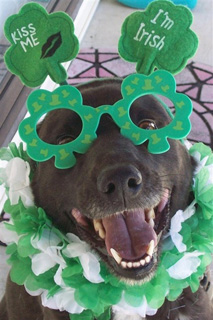 St. Patrick’s Day is coming up and soon it will be time to put on the GREEN.
St. Patrick’s Day is coming up and soon it will be time to put on the GREEN.
Here at VetLocator Daily Paws we refer to the day as St. Pawtrick’s Day and we love to celebrate it by adding a bit ‘o green to our attire and to our pet’s ‘dress’ too.
Here are some of our tips for celebrating the day in a fun and safe way. We always include safety tips (and we’re sorry if we sound like your mother when we do. It’s what we are focused on though, healthy and happy pets, so we hope you excuse us for the repeat – and guarantee you’ll hear us saying this stuff again). So here are some tips.
Patrick’s Day is fun, crazy and full of celebration for many and pet owners should make sure their pets are protected during the celebrating. Follow these safety tips to keep your pet safe this St. Pawtrick’s Day.
- Keep your pets away from holiday food. Some traditional Irish food can make your pets ill. This is the usual advice – Watch what you feed your pets and check on them before, during and after a party to see if they look like they’ve eaten something that they should not have.
- Don’t get your pets drunk. On this day especially some irresponsible people will think it’s funny to give a pet beer. Even if that’s not you, if you’re celebrating and your pets are with you, watch that someone else does not sneak booze to your pet because they think it’s a funny thing to do.
- Plan on wearing green and add a bit to your pet’s attire too. Remember – wear green or be pinched!
- It’s becoming popular to dye or airbrush a cat or dog’s fur. If you fancy this, do some research first before proceeding. Some dyes are toxic and some are permanent. Also some pets get freaked when they are being decorated by an owner.
- And in the event something should happen, keep your emergency numbers at hand.
We have some photos of Pets on Parade that are fully into the St. Patrick’s Day festivities.
Awesome Pets Dressed Up and Ready for Irish Parade
March 5th, 2013Need a costume for your furry friend on St. Patty’s day? Check out these items Leprechaun Pet Costume, Lucky Charm Dog Tank Top
, St. Patrick’s Day Clover Party Dog Collars
and Saint Patricks Day Holiday Shirt .



